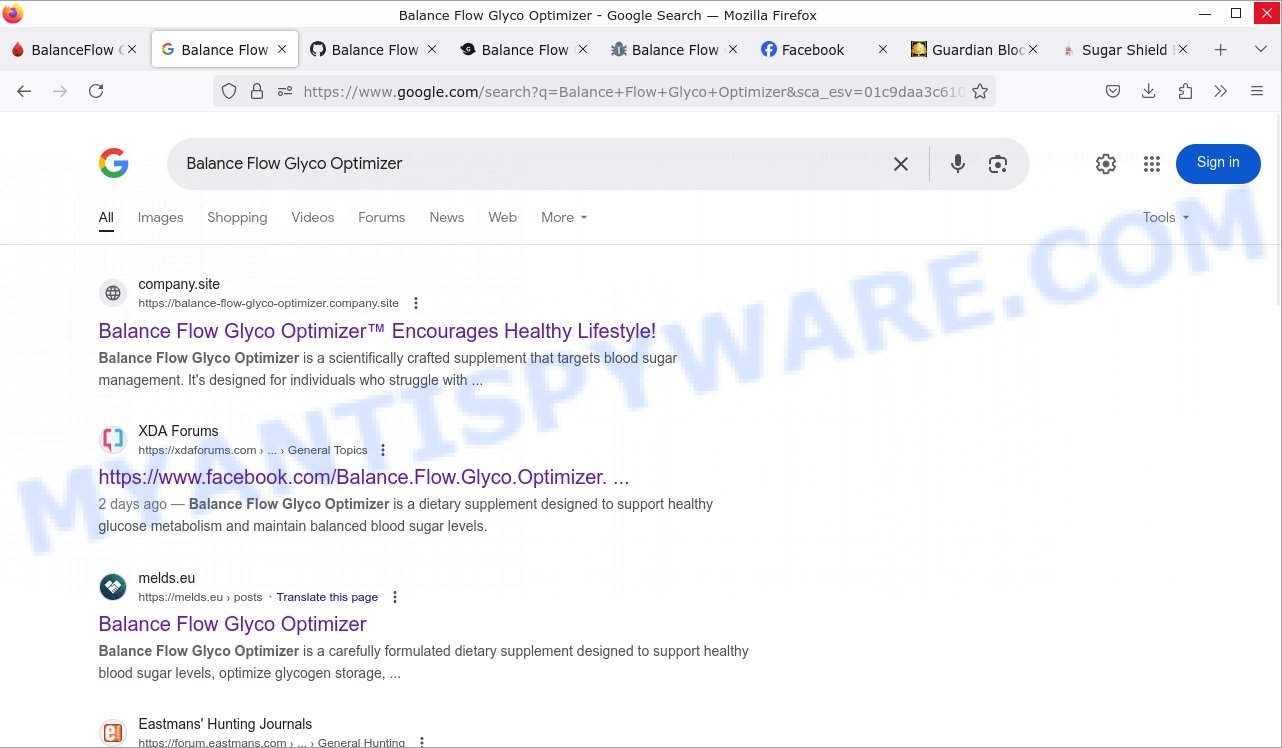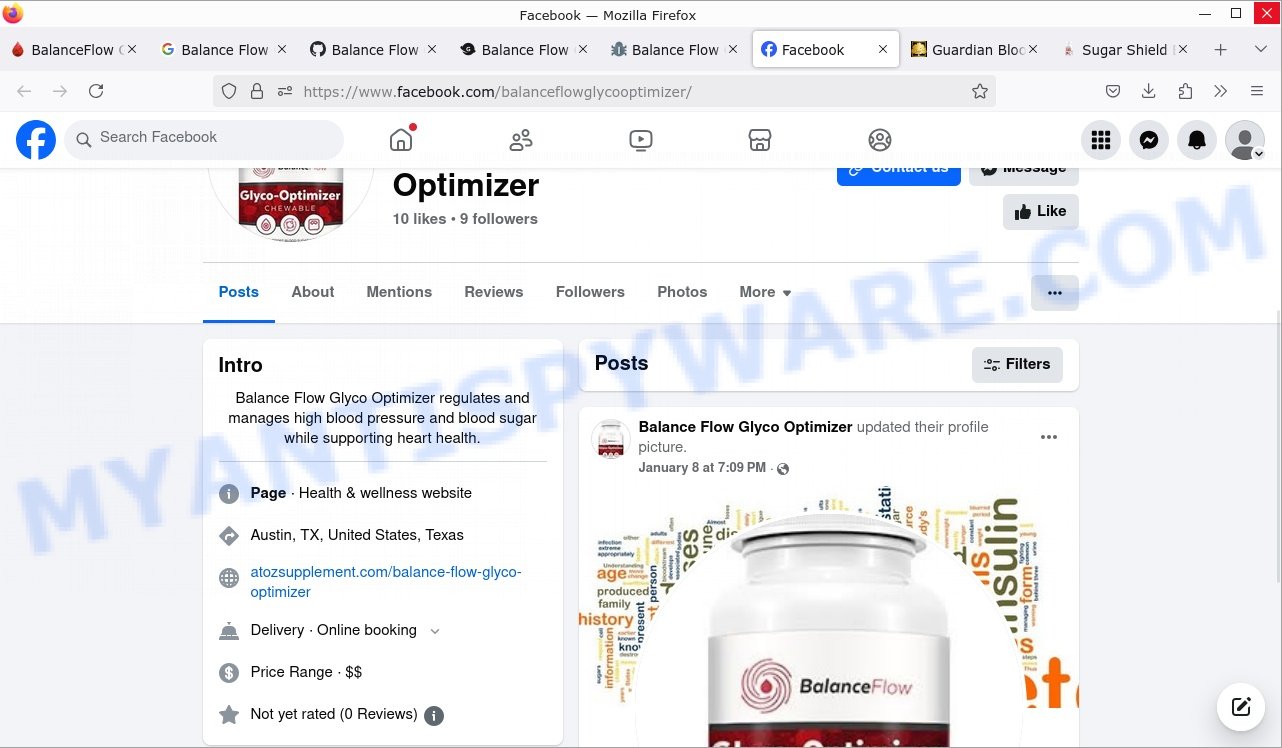Scammers are aggressively promoting BalanceFlow Glyco Optimizer, a product that’s raising numerous red flags. This supplement is widely advertised across the internet, especially on social media platforms like Facebook and Instagram, using deceptive tactics to lure in unsuspecting customers. However, don’t be fooled. The marketing behind this product is filled with false promises and misleading practices.
The promoters of BalanceFlow Glyco Optimizer are utilizing fake endorsements, including deepfake videos and the unauthorized use of well-known public figures’ images such as those of Jesse Watters, Barbara O’Neill, and Clint Eastwood. They employ counterfeit advertisements, fabricated articles, and fake user reviews to deceive potential buyers. These ads often lead to dubious websites that present bogus testimonials and unverified claims, suggesting that the supplement can miraculously manage blood sugar, lower blood pressure, and promote significant weight loss. However, there is no real evidence or scientific proof to back these claims.
Additionally, the scam sites promoting BalanceFlow Glyco Optimizer use misleading pricing strategies and false refund policies to exploit customers. Reports on social media indicate that customers are being overcharged or unable to receive refunds when they try to resolve issues through customer support. The websites often feature urgent sales language and unrealistic discount offers, aiming to pressure customers into quick purchases without proper research.
If you’re considering buying BalanceFlow Glyco Optimizer, think twice. It’s crucial to talk to a healthcare professional before trying this or any supplement, especially if it’s advertised with unrealistic claims and fake endorsements. Real health solutions should be based on sound medical advice, not deceptive ads. Protect your health and your wallet—stick to trusted treatments and information from qualified healthcare providers.
Table of Contents
🚨 Is BalanceFlow Glyco Optimizer a Scam?
BalanceFlow Glyco Optimizer is being promoted through various deceptive marketing tactics aimed at misleading consumers. These strategies are commonly used by scammers to exploit individuals seeking solutions for health and wellness issues.
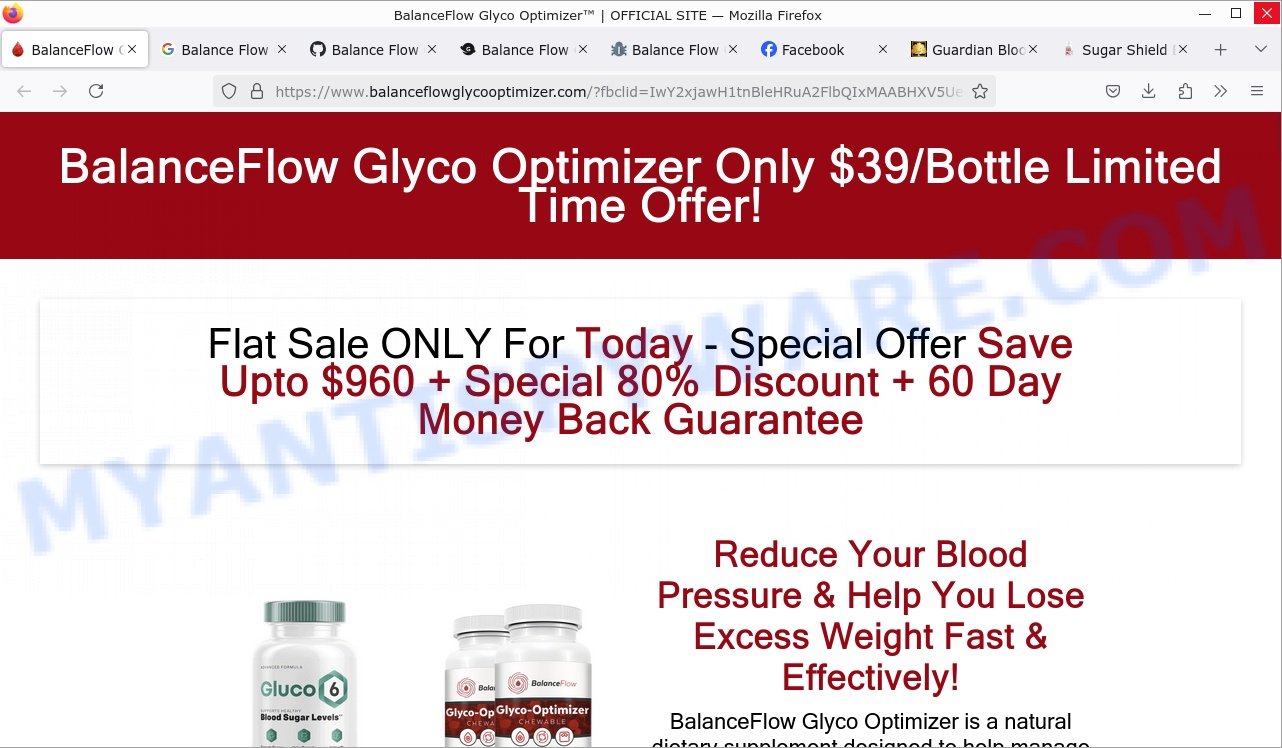
Key Red Flags:
- 🌐 False Celebrity Endorsements: The promotion of BalanceFlow Glyco Optimizer includes unauthorized use of high-profile names such as Jesse Watters, Barbara O’Neill, Clint Eastwood, and even Jane Goodall. These endorsements are completely fabricated and often supported by AI-generated deepfake videos to create a false sense of credibility.
- ⭐ Fabricated Testimonials and Reviews: Fake reviews and testimonials are circulating on social media and various websites. These reviews appear to be staged with random profiles and are used to falsely suggest that the product has consistently positive results.
- 🔒 Misleading Website Claims: The scam websites use official-sounding claims like being “FDA approved” or manufactured in “FDA registered facilities”, even though dietary supplements are not approved by the FDA. Additionally, dubious websites employ low-quality domains that are unconnected to reputable organizations.
- ⚠️ Exaggerated Health Claims: The promotional materials claim that BalanceFlow Glyco Optimizer can reduce blood pressure, control blood sugar, and promote rapid weight loss. These claims are unsubstantiated and mislead consumers by promising unrealistic health benefits.
- 📉 Poor Website Design and Spam Tactics: The scam websites are filled with poorly designed layouts, disjointed text, and low-quality images. Spammers frequently push these sites on forums and social media platforms to boost visibility through black-hat SEO tactics.
- 💳 Unauthorized Charges and Refund Issues: Consumers have reported being charged significantly more than advertised. Attempts to contact customer service have resulted in no response or a refusal to refund overcharges, highlighting a pattern of fraudulent billing practices.
- 👤 Fake Endorsements Using Deepfake Technology: Scammers use deepfake technology to create false endorsements from trusted figures, manipulating videos and audio to falsely imply that well-known experts support the product.
- 📜 Misleading Legal and Safety Claims: Promotional materials claim that BalanceFlow Glyco Optimizer meets high safety and quality standards, but there is no verifiable evidence to support these assertions, rendering them highly misleading.
- 🔗 Redirecting to Untrustworthy Sites: Links such as “SHOP NOW” and “Buy Now” redirect users to dubious websites that are likely part of the scam network, designed to capture consumer information and process unauthorized transactions.
- 📈 Overstated Benefits and Urgent Sales Tactics: The ads use urgent language and exaggerated benefits to pressure consumers into making quick purchases without sufficient time to verify claims or consult with trusted professionals.
In summary, the numerous red flags surrounding BalanceFlow Glyco Optimizer indicate that the product is part of a scam designed to deceive and exploit consumers. The use of fake celebrity endorsements, fabricated testimonials, exaggerated health claims, poor website quality, and misleading legal statements strongly suggest that BalanceFlow Glyco Optimizer is not a legitimate health supplement. It is strongly advised to avoid this product and seek advice from qualified professionals for trustworthy and evidence-based solutions.
🕵️♂️ How the ‘BalanceFlow Glyco Optimizer’ Scam Operates
Scammers initiate their scheme by deploying targeted ads or sponsored posts on social media platforms such as Facebook and Instagram. They may use deceptive “black SEO” tactics—publishing misleading articles, fake reviews, and keyword-stuffed content to boost search engine rankings while burying negative feedback. This approach targets individuals looking for quick solutions for blood sugar management, hypertension, or weight loss, which BalanceFlow Glyco Optimizer falsely claims to address.
Once users click on these ads or posts, they are redirected to fraudulent websites designed to mimic legitimate health outlets. These sites copy logos, layouts, and editorial styles to appear authentic and trustworthy, deceiving visitors into believing the product is endorsed by reputable sources.
A key tactic employed by scammers is the misuse of public figures’ images and names. Fake endorsements supposedly from celebrities and well-known health experts are used to lend credibility to their false claims. For instance, images of public figures are manipulated using AI technology or deepfakes to make it seem as though respected figures endorse BalanceFlow Glyco Optimizer, further misleading potential victims.
The scam websites often showcase an overload of trust logos such as Google Trusted Store, VeriSign Trusted, and McAfee Secure, among others, in an attempt to create a false sense of security. Legitimate businesses typically do not display so many trust symbols on a single page.
Fear tactics are heavily utilized throughout the promotional material. Urgent language like “Limited Time Offer” or “Exclusive Deal Today” is used to instill anxiety and force consumers to make rushed decisions without proper research.
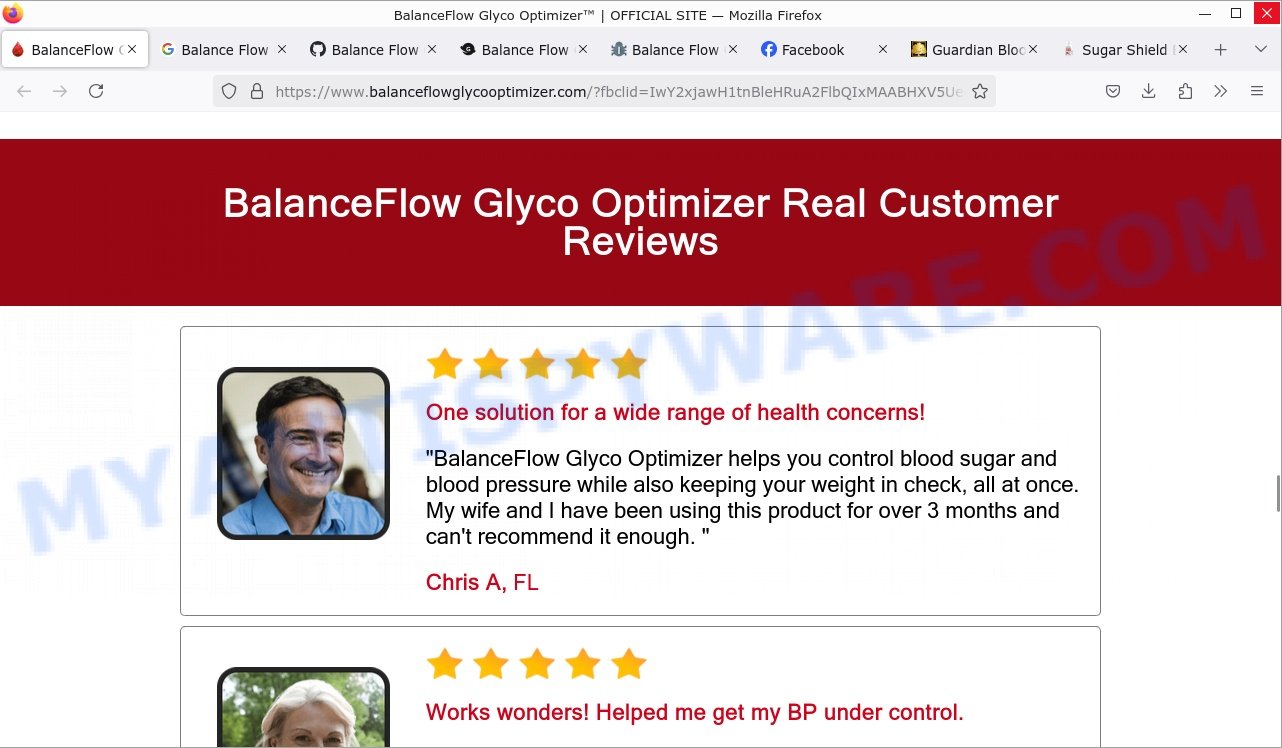
Testimonials and user reviews on these scam sites are entirely fabricated. They feature supposed users who claim dramatic improvements after using BalanceFlow Glyco Optimizer, aiming to convince readers that they have found a reliable solution. In reality, many customers have complained about being overcharged and receiving no response when trying to resolve issues or request refunds.
High-pressure sales techniques are prevalent, with phrases such as “Limited Time Special Pricing” and “Act Now to Save” urging consumers to act quickly. These tactics are designed to trap victims into making impulsive purchases. Some sites also mislead customers by advertising a low price upfront, only to charge significantly more—an issue reported by several customers online.
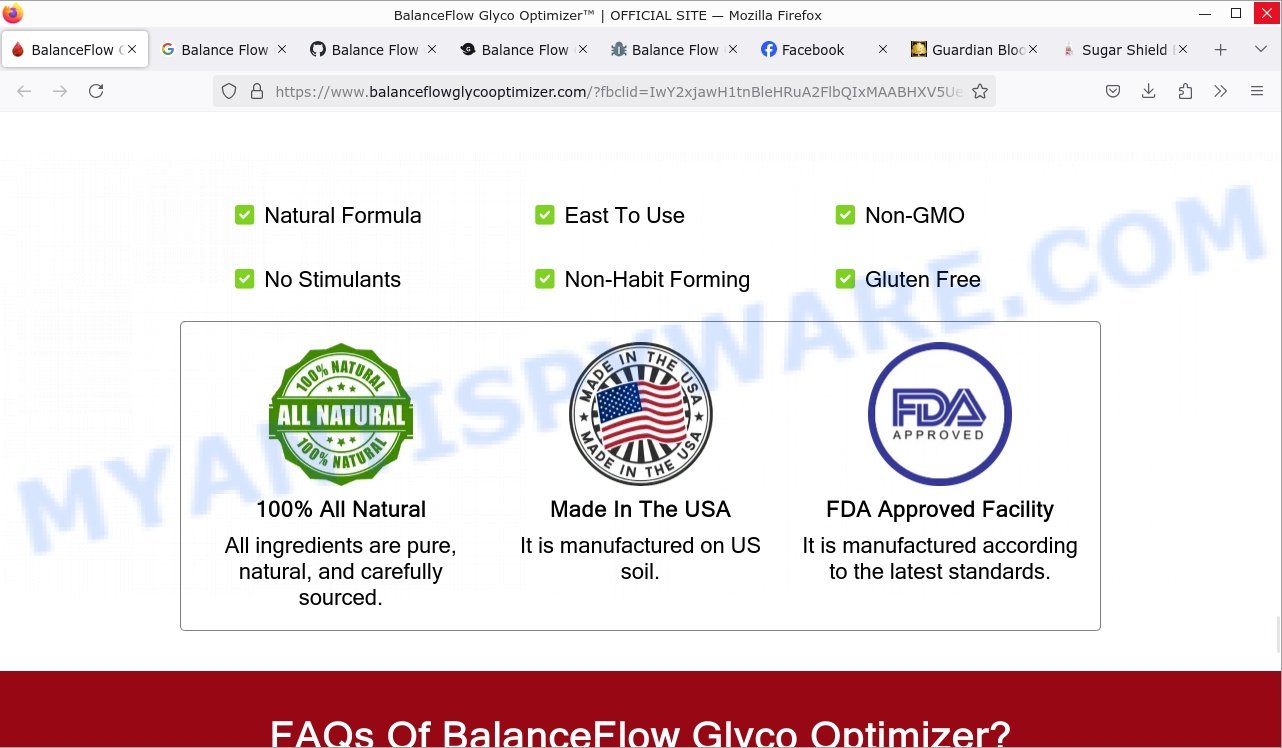
Moreover, the scam websites frequently include inconsistent or false claims regarding the product’s quality, such as stating it is manufactured in a certified facility or is FDA approved, despite the absence of any verifiable evidence. The low-quality design and content on these sites are further indications of their illegitimacy, though less experienced users may not notice these flaws immediately.
After victims are enticed into making a purchase, scammers often push additional sales through unrealistic discounts or incentives like “free shipping”. Many consumers are unexpectedly enrolled in automatic renewal plans, resulting in recurring charges that are nearly impossible to cancel. Attempts to get refunds have proven futile, leaving buyers with significant financial losses.

A notable aspect of the scam is the complete lack of scientific evidence or credible endorsements. The product is marketed with exaggerated health claims that are unsupported by real research or clinical trials. Consequently, buyers often find that the supplement is ineffective, or they may never receive the product at all—only realizing too late that they have been deceived.
Through misleading advertisements, black SEO strategies, counterfeit endorsements featuring manipulated images of public figures, and fabricated reviews, the BalanceFlow Glyco Optimizer scam deceives consumers who mistakenly believe they are purchasing a legitimate health supplement.
🤔 Why Such Scams Are Possible
Quick Profit Motive
Scammers promoting “BalanceFlow Glyco Optimizer” focus on rapid financial gain. They make exaggerated promises and false endorsements, knowing these deceitful claims may be exposed later but hoping to earn as much money as possible before that happens.
Limited Oversight on Ad Platforms
Social media sites strive to block fraudulent ads, but they can’t catch them all. The large volume of advertisements means promotions for “BalanceFlow Glyco Optimizer” can slip through, allowing scammers to reach a wider audience.
🧠 Human Psychology
The marketers behind “BalanceFlow Glyco Optimizer” understand that many people are seeking quick fixes for their problems. These “too good to be true” claims often cause individuals to overlook critical details and warnings.
⚖️ Lack of Legal Consequences
Many “BalanceFlow Glyco Optimizer” scams involve complex setups spanning multiple countries, making it challenging to take legal action. As a result, scammers continue operating with little risk of punishment.
👤 Anonymity on the Internet
Scammers use fake identities, temporary websites, and hidden domain registrations when promoting “BalanceFlow Glyco Optimizer”. Additionally, they actively use the image of Barbara O’Neill to lend false credibility to their misleading campaigns. This anonymity makes it difficult for authorities to track them down and stop their deceptive practices.
💡 Beware of Similar Scams
It’s important to stay vigilant not just about BalanceFlow Glyco Optimizer but also other products claiming incredible health benefits that may not deliver. Here are some similar products to be cautious of:
Kelly Clarkson and Dolly Parton Weight Loss Scam
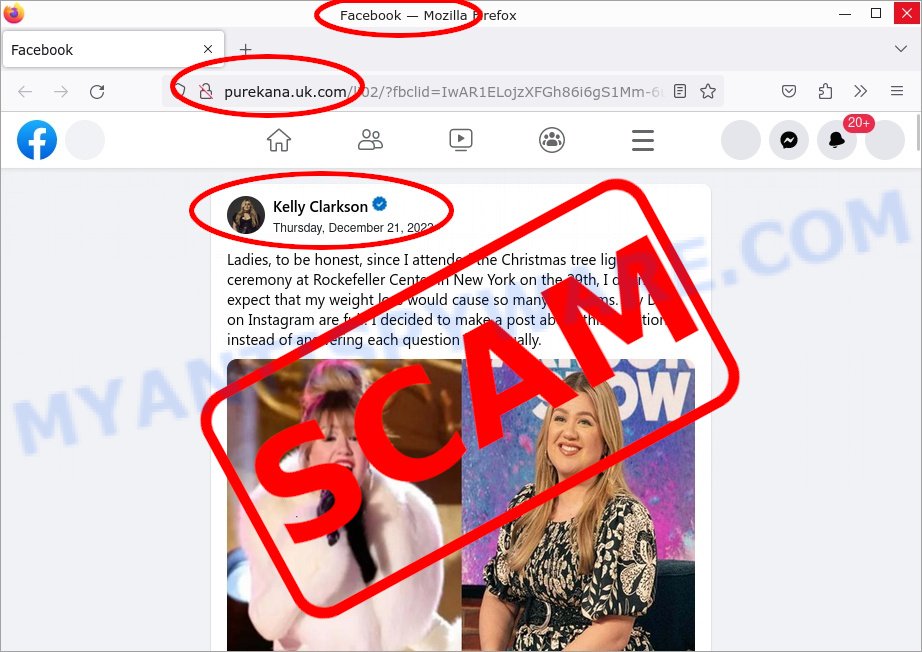
The Kelly Clarkson and Dolly Parton Weight Loss Scam falsely claims endorsements from these beloved celebrities to promote a miracle weight loss solution. By leveraging the fame and trust associated with Kelly Clarkson and Dolly Parton, scammers create a deceptive sense of credibility and legitimacy. These scams typically promise rapid and effortless weight loss through unverified supplements or programs, often accompanied by fabricated testimonials and doctored images of the celebrities. Consumers are lured in with attractive before-and-after photos and persuasive marketing messages, only to find that the product offers no real benefits and may even pose health risks.
SuperFlow Glycogen Support Reviews Scam
SuperFlow Glycogen Support is marketed as a revolutionary blood sugar support supplement, but these claims are unrealistic and align with typical deceptive marketing tactics often used to mislead vulnerable consumers.
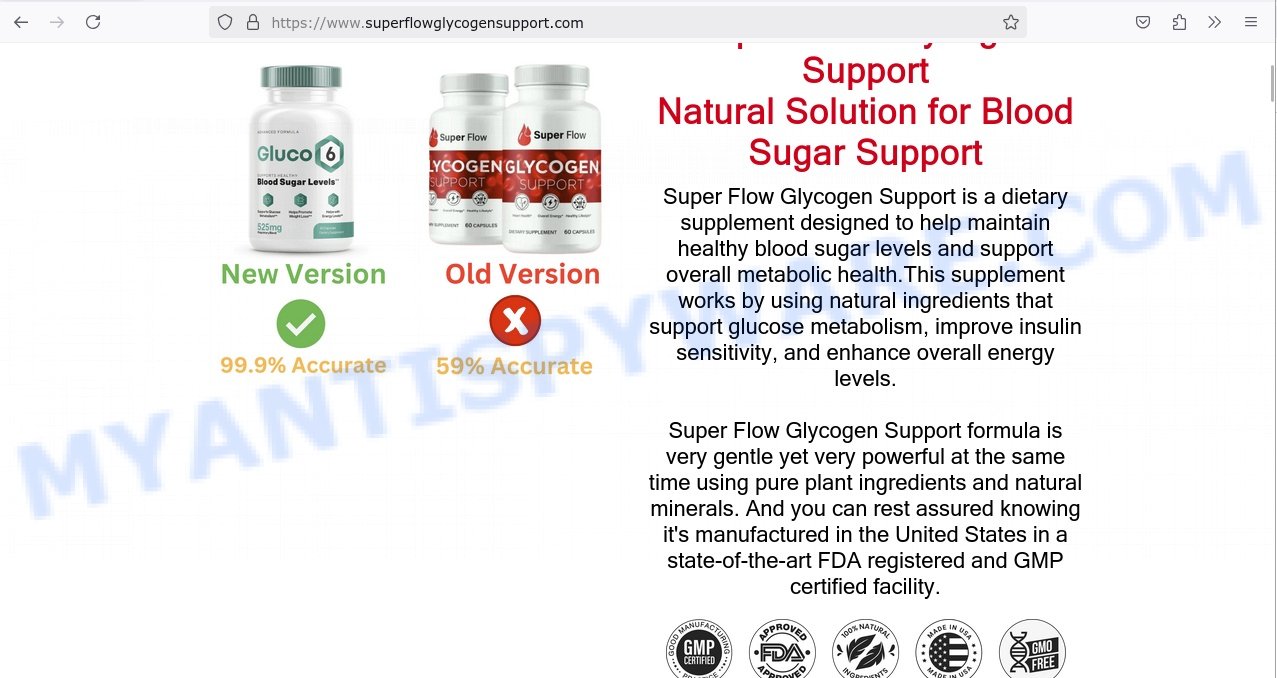
Blue Vibe CBD Gummies Scam
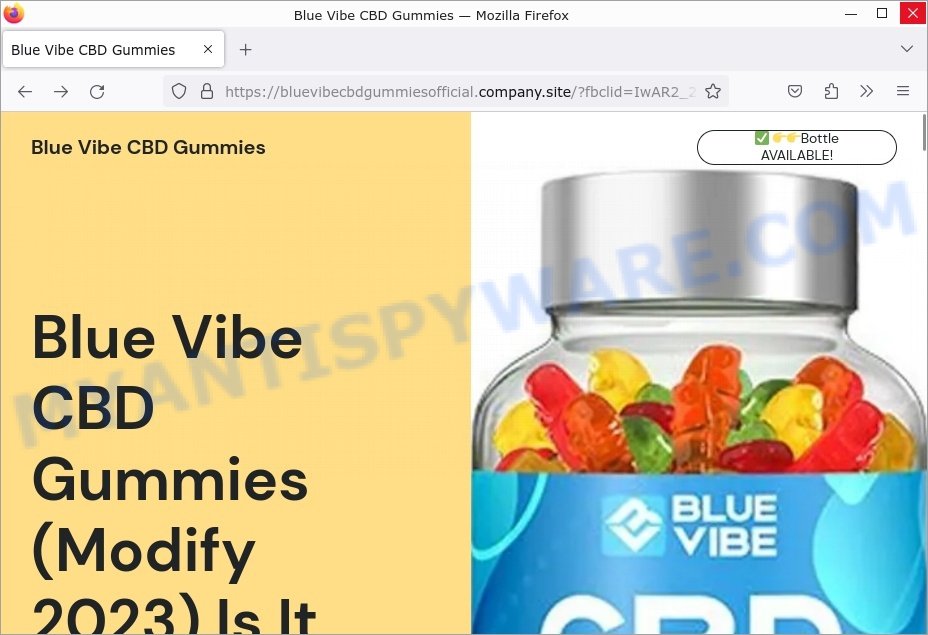
The Blue Vibe CBD Gummies Scam targets individuals seeking natural remedies for various health issues. This scam leverages the popularity of CBD products by making exaggerated claims such as curing chronic pain, eliminating anxiety, and providing significant mental health benefits without any scientific backing. Often, these gummies are marketed with fake certifications and misleading ingredient lists, making it difficult for consumers to verify their legitimacy. Additionally, the use of manipulated customer testimonials and aggressive marketing tactics, like limited-time discounts, further entrap unsuspecting buyers into purchasing ineffective and overpriced products.
These products share common red flags:
🚩 False Science: They use scientific-sounding language that lacks credible backing.
🚩 Fake Reviews: Customer testimonials often seem scripted and too good to be true.
🚩 Pressure Tactics: Limited-time offers and countdown timers urge quick purchasing decisions.
🚩 Unclear Contact Information: They provide an email or an address often linked to fraudulent activities.
😱 What to Do If Scammed
If you find yourself ensnared by the BalanceFlow Glyco Optimizer Scam, immediate action is crucial. Here’s what you should consider doing:
🛑 Stop Further Transactions
The first step is to halt any additional transactions that might be in process. Contact your bank or credit card provider and inform them that you’ve fallen victim to a scam. They can help by blocking the card or reversing any unauthorized transactions.
📞 Report the Fraud
File a report with your local police and provide all the available evidence, such as screenshots, emails, and website URLs. Additionally, report the scam to online portals like the Better Business Bureau (BBB) at www.bbb.org or the Federal Trade Commission (FTC) at reportfraud.ftc.gov. If you’re in another country, reach out to your national consumer protection agency.
💻 Take Screenshots
Before the scam website gets taken down or changes, make sure to capture screenshots of your transactions and communications. These can serve as evidence if you decide to pursue legal action.
⚖️ Consult Legal Advice
Speak to a legal advisor about your situation. While pursuing legal action may be time-consuming and costly, it could be a possible avenue for recovering your lost money.
📢 Share Your Experience
Use social media platforms to share your experience and warn others about the scam. Your story could prevent someone else from falling victim to the same or similar scams.
Summary Table
| Factor | Observations | Impact on Legitimacy |
|---|---|---|
| Product Description | Promoted as a natural health supplement with claims to regulate blood sugar, lower blood pressure, and aid weight management. Uses exaggerated and misleading statements without verifiable scientific evidence. | Negative (Exaggerated, unsubstantiated claims with no credible backing) |
| Reviews | Contains numerous testimonials and reviews on various websites that are likely fabricated. Independent verification is missing, and some reviews report billing issues. | Negative (Fake testimonials and reports of billing fraud) |
| Marketing Channels | Promoted through Facebook ads using fake profiles and impersonating reputable figures such as Barbara O’Neill and others. Deepfake technology is used to fabricate endorsements. | Negative (Deceptive marketing tactics and impersonation of real individuals) |
| Price | Advertised at a low initial price, but users report hidden charges and unauthorized billing increases far above the advertised price. | Negative (Misleading pricing structures and hidden fees) |
| Real Functionality | Claims significant health benefits such as curing diabetes and purifying blood but provides no credible scientific studies or clinical evidence to support these benefits. | Negative (Lack of supporting clinical evidence) |
| Company Contacts | Limited contact information with many reports of unresponsive customer service and difficulty obtaining refunds or stopping recurring charges. | Negative (Poor customer service and lack of transparency) |
| Product Source | Claims to be manufactured in an FDA-registered and GMP-certified facility, yet no verifiable third-party certificates or clear manufacturing details are provided. | Negative (Unverifiable manufacturing claims and misleading statements) |
| Safety Claims | Emphasizes the use of natural ingredients and safety, but fails to offer detailed information on potential side effects, interactions, or any scientific safety profiles. | Negative (Incomplete safety details and misleading implications) |
| Website Transparency | Uses high-pressure sales tactics such as fake countdown timers, limited stock alerts, and hidden subscription terms. The website domain is registered anonymously and associated with other scam operations. | Negative (High-pressure tactics and lack of ownership transparency) |
| Refund Policy | Claims a money-back guarantee and refund policy; however, numerous reports indicate significant difficulties with obtaining refunds and resolving overcharge issues. | Negative (Misleading refund policy and poor consumer experience) |
Conclusion
The BalanceFlow Glyco Optimizer is a scam, using fake articles, random Facebook profiles, and suspicious domains to create a false sense of credibility. Scammers behind this product employ deepfake technology and unauthorized endorsements by falsely attributing support to public figures like Barbara O’Neill, Jesse Watters, and even Clint Eastwood, misleading potential buyers.
Instead of offering genuine benefits, consumers are drawn in by fabricated testimonials and exaggerated health claims, including promises of dramatically lowering blood pressure, regulating blood sugar, and promoting rapid weight loss. The website uses urgent language and misleading pricing tactics, leading to situations where customers are charged more than the advertised price, and customer service is unresponsive or unreachable.
Bottom Line: Avoid BalanceFlow Glyco Optimizer. Always conduct thorough research on any supplement that makes unrealistic health claims, especially when the marketing uses manipulative tactics or promises exceptional results at unusually low prices.
Stay cautious and critical; if an offer appears too good to be true or relies on deceptive endorsements and fake testimonials, it is most likely a scam.
